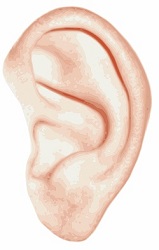
You’re going to find that there will be times when people will have no stomach for solid teaching, but will fill up on spiritual junk food—catchy opinions that tickle their fancy. They’ll turn their backs on truth and chase mirages. But you—keep your eye on what you’re doing; accept the hard times along with the good; keep the Message alive; do a thorough job as God’s servant.
If Trump loses—which he probably will—the Republican Party will lose with him, and it will deserve its loss. The down-ticket damage will be all of Trump’s doing, with the party’s open complicity, and much of the gains at the state and local level in recent years will be undone.
It is worse if Trump wins (and I think he has a higher chance of winning than most polls say): a Trump victory vindicates Trumpism—already dangerously on the rise—and permanently transforms the Republican Party into the party of white grievance, nativism, and belligerent nationalism. America will no longer have a party of limited government and classical liberalism. Losing the presidency but recovering a party dedicated to the ideals of ordered liberty is far preferable.
Preach it, brother!
Nowhere is this itching ears syndrome more evident than in the rush by evangelicals to endorse Trump because of his supposed Christianity. I am appalled and embarrassed that men whom I respect, such as James Dobson, would assert, on the flimsiest of evidence, that Trump has accepted Christ as his Savior. Of course we as Christians want every soul to be saved. Of course it would be great if Donald Trump (or Hillary Clinton, for that matter) were to come to faith. That’s totally not the issue. What is the issue is that Dobson is willing to write this letter on his website in which he basically admits that he really has no clue as to whether or not Trump is a Christian, but that Hillary scares him to death, so he’s supporting Trump. But it is far scarier to put your trust in someone who will change his message at any time if he thinks that will get him attention and votes. You have no way to fight someone like that. Last week’s immigration imbroglio is only one such example of Trump’s utter unreliability. And, in describing Trump’s answer to his question about how the candidate would support and enhance religious liberty if elected, Dobson says, “Donald Trump was very sympathetic to the concerns I expressed, although I can’t remember his precise words.” What? You can read the full article here. (I will re-direct you to another excellent article on The Federalist, one that I posted back at the beginning of this blog: “5 Most Sickening Parts of Trump’s Meeting with Evangelical Leaders” and a followup post, “It Doesn’t Matter If Trump Is a Christian.” Both of these articles were written by a young woman named Rebecca Cusey, who is clearly a Christian and knows exactly what she’s talking about.)
Well, that’s enough for one day. Tomorrow I want to address the astonishing, astounding op-ed written by Jerry Falwell, Jr., and published earlier this month in the Washington Post no less on how Trump is comparable to Winston Churchill in his leadership capabilities. Somebody hand me the smelling salts, please!
